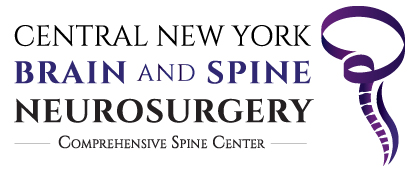Back pain characterized by soreness or aches is a common enough experience. However, severe or persistent pain may have an underlying cause that differs from commonplace soreness that might occur after weeding the garden or sitting too long in one’s favorite chair. If you’re experiencing sharp pain or sensations like pins and needles, you might have a pinched nerve. Many people may fear the thought of back surgery being needed to treat back problems, but endoscopic surgery is minimally invasive and it may be the key to relieving your pain for good.
What Is a Pinched Nerve?
A pinched nerve occurs when tissue near the nerve places too much pressure on it. Muscles, cartilage, tendons, or even bone can put pressure on the nerve, causing it to experience pain, weakness, or a feeling of numbness. A pinched nerve in the back may be caused by a herniated disk. The bulging disk can place pressure on the nerve root, causing its compression and leading to intense pain. Various conditions can also cause pinched nerves; these may include spinal stenosis, spinal osteoarthritis, and even diabetes.
What Are the Symptoms of a Pinched Nerve in the Back?
Pain is, of course, the chief symptom of a pinched nerve, but not the only one. Some people may experience muscle weakness in the affected area of the back. Others may experience numbness or a burning sensation that radiates outward from the affected nerve. Tingling or feeling a sensation like pins and needles may also occur with this condition.
Meeting with a Spine Specialist
A neurosurgeon can quickly get to the root of your problem with diagnostic tests such as an MRI. In fact, your neurosurgeon may even suspect a pinched nerve from your description of your experience. In many cases, back specialists may not recommend surgery. Often, rest, deep muscle massage, or modifying physical activities associated with the pain can alleviate the condition. Physical therapy is sometimes helpful for alleviating pinched nerves too.
Surgery for Back Pain
When conservative treatments or even medications like steroids don’t alleviate the pinched nerve, your neurosurgeon may recommend surgery. The type of surgery will depend where the nerve happens to be and what’s causing the compression. Surgeries most often recommended to treat pinched nerves in the back include laminectomy, microdiscectomy, and foraminotomy. Your neurosurgeon will recommend whatever surgical type is best for your situation.
Endoscopic Surgery for Pinched Nerves
Many patients undergo endoscopic surgery in relation to the surgical types listed above. Your neurosurgeon may recommend an endoscopic microdiscectomy or foraminotomy. Endoscopic surgery affords patients with many benefits. For one, it’s minimally invasive unlike open spine surgery. Sometimes the required incisions are only a few millimeters in length for an endoscopic surgery.While your neurosurgeon will explain your surgery in detail, you can generally expect to undergo local anesthesia and experience a reduced risk for blood loss, muscle damage, or infection as a result of endoscopic surgery. The recovery time may also be fast and require less rehabilitation.
If you are experiencing symptoms associated with a pinched nerve in your back, you can rely on Dr. Nicholas Qandah and his care team at Central New York Brain and Spine Neurosurgery. Dr. Qandah can diagnose your condition and recommend the ideal treatment for you. The sooner you visit, the sooner you can experience the relief you crave.

